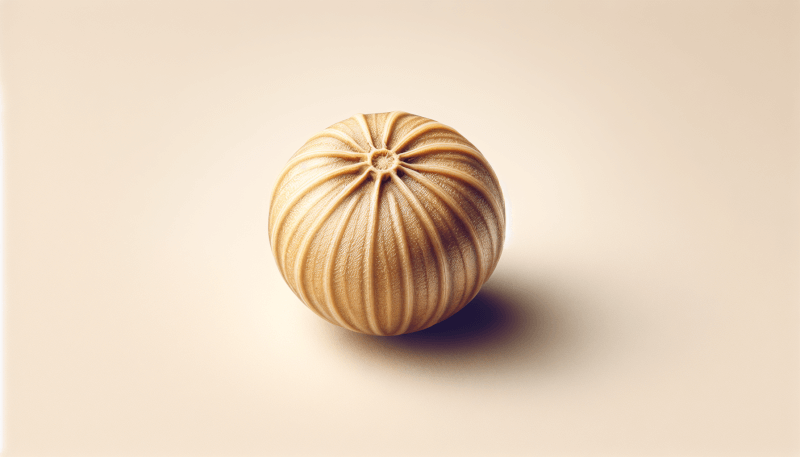If you’re looking to add a burst of flavor to your culinary creations, look no further than coriander seeds. These tiny powerhouses are packed with a myriad of health benefits and a unique taste that can elevate any dish to new heights. Whether you’re a seasoned chef or a kitchen novice, incorporating coriander seeds into your recipes will undoubtedly impress your taste buds and leave you craving for more. Get ready to embark on a delicious journey with coriander seeds as your trusty companion.
Description
Coriander seeds, also known as coriander or cilantro seeds, are the dried fruits of the coriander plant (Coriandrum sativum). These small, round seeds have a yellowish-brown color and a distinctive flavor. Coriander seeds are an essential spice used in cuisines worldwide, adding a warm, aromatic touch to a variety of dishes.
Appearance
Coriander seeds are tiny, oval-shaped seeds that are roughly 1/16 inch in diameter. They have a smooth texture and a yellowish-brown color. These seeds are often enclosed within the dried flower clusters of the coriander plant, making them easily recognizable.
Taste
Coriander seeds have a unique flavor profile that is often described as warm, nutty, and slightly citrusy. They have a mild bitterness that adds depth to dishes. When toasted or ground, coriander seeds develop a more intense and fragrant taste.
Aroma
The aroma of coriander seeds is both fresh and spicy, with hints of citrus and earthiness. Crushing or grinding the seeds releases their essential oils, enhancing the aroma and adding a pleasant fragrance to dishes.
Cultivation
Coriander plants thrive in temperate climates and are commonly cultivated as an annual herb. Here are some key factors to consider when growing coriander:
Growing conditions
Coriander plants prefer well-drained soil with a pH between 6.2 and 6.8. They require ample sunlight, preferably at least 6 hours a day, and partial shade during hotter periods. Adequate watering is essential, but it’s important to avoid overwatering, as excessive moisture can lead to root rot.
Seeding
Coriander seeds can be sown directly into the ground or started indoors and transplanted later. It is crucial to provide enough space between plants, as coriander tends to grow densely. The seeds should be planted at a depth of approximately 1/4 to 1/2 inch and spaced 8 to 10 inches apart.
Harvesting
Coriander leaves, also known as cilantro, are typically harvested while the plants are young and tender. However, if you wish to collect coriander seeds, you must wait until the cilantro plants have bolted and produced seed heads. The seeds can be harvested by cutting the entire seed head and allowing it to dry before gently rubbing the seeds to separate them from the husks.
Health Benefits
In addition to their culinary uses, coriander seeds offer a range of health benefits. Let’s explore some of the most notable ones:
Digestive health
Coriander seeds have long been used to aid digestion and alleviate digestive discomfort. They contain compounds that promote the production of digestive enzymes and help regulate bowel movements, assisting in maintaining a healthy digestive system.
Improve blood sugar control
Research suggests that coriander seeds may help regulate blood sugar levels. Certain compounds found in these seeds can enhance insulin secretion and improve insulin sensitivity, which is crucial for maintaining stable blood glucose levels.
Antimicrobial properties
Coriander seeds possess antimicrobial properties that can inhibit the growth of harmful bacteria and fungi. These properties make coriander seeds a potential natural remedy for tackling various microbial infections.
Nutritional Value
Coriander seeds are not only flavorful but also have a considerable nutritional value. Here are some key nutrients found in coriander seeds:
Vitamins and minerals
Coriander seeds are a rich source of vitamins and minerals. They contain vitamin C, vitamin K, and vitamin A, which contribute to overall health. Additionally, coriander seeds are a good source of calcium, iron, magnesium, and potassium.
Dietary fiber
Coriander seeds are high in dietary fiber, making them beneficial for maintaining a healthy digestive system. Fiber helps regulate bowel movements, prevents constipation, and promotes overall gut health.
Antioxidants
Coriander seeds are packed with antioxidants that help neutralize harmful free radicals in the body. These antioxidants, such as quercetin and kaempferol, have been associated with various health benefits, including reducing inflammation and protecting against chronic diseases.
Medicinal Uses
Coriander seeds have a long history of use in traditional medicine systems. They have been prized for their healing properties and have been used to treat various ailments. Here are a few examples of how coriander seeds are used medicinally:
Herbal remedies
Coriander seeds are used in the preparation of herbal remedies to address digestive issues, such as bloating, indigestion, and diarrhea. They are often steeped in hot water to make a soothing tea that can alleviate these discomforts.
Traditional medicine
In traditional medicine practices, coriander seeds have been used to treat conditions like arthritis, inflammation, and high cholesterol. While further scientific research is needed to support these claims, coriander seeds continue to be valued for their potential health benefits.
Cooking and Culinary Uses
Coriander seeds are widely used in cooking due to their versatile flavor profile. They add depth and complexity to a variety of dishes, enhancing the overall taste. Here are some popular culinary uses of coriander seeds:
Spice for dishes
Coriander seeds are a staple spice in many cuisines around the world. They are commonly used in curries, stews, soups, and spice blends. When ground, they infuse dishes with their distinctive flavor and aroma, elevating the overall taste experience.
Seasoning for marinades
Coriander seeds make an excellent addition to marinades for meats and vegetables. Their flavor profile pairs well with various marinade ingredients, bringing a unique twist to grilled or roasted dishes.
Flavoring for beverages
Coriander seeds can also be used to add flavor to beverages. When infused in hot water, they create a fragrant and refreshing tea. Additionally, in some cultures, coriander seeds are used to flavor liqueurs and spirits, adding complexity to cocktails and drinks.
Popular Recipes
Coriander seeds are a prized ingredient in numerous recipes around the world. Here are three popular and delicious dishes that highlight the flavorful nature of coriander seeds:
Coriander-infused chicken curry
This aromatic curry combines tender chicken with a fragrant blend of spices, including ground coriander seeds. The coriander adds a warm and nutty flavor, enhancing the overall richness of the dish.
Zesty coriander salsa
Fresh and vibrant coriander salsa is a delightful accompaniment to various meals. It incorporates chopped coriander leaves along with ground coriander seeds, lime juice, tomatoes, and onions, creating a zesty and flavorful topping.
Refreshing coriander mint chutney
Coriander and mint chutney is a staple in Indian cuisine, often served alongside a variety of dishes. It combines coriander leaves, mint leaves, coriander seeds, garlic, lime juice, and other seasonings to create a refreshing and tangy dip.
Coriander Seeds vs. Coriander Leaves
While coriander seeds and coriander leaves come from the same plant, they have distinct differences in both flavor and culinary applications.
Differences in flavor
Coriander leaves, also known as cilantro, have a fresh, citrusy flavor with a slightly peppery undertone. They have a crisp and cooling quality that is often used to balance spicy dishes. On the other hand, coriander seeds have a warm, nutty, and slightly citrusy taste with a mild bitterness.
Culinary applications
Coriander seeds are primarily used as a spice in cooking, adding flavor and aroma to dishes. They are commonly ground or toasted before being used to enhance curries, soups, and spice blends. Coriander leaves, on the other hand, are used as an herb, added fresh or as a garnish to salads, salsas, and many other dishes.
Cultural Significance
Coriander plays a significant role in various cuisines and cultures around the world. Let’s explore its cultural significance in different culinary traditions and its symbolism throughout history.
Coriander in different cuisines
Coriander is an essential ingredient in many cuisines, including Indian, Mexican, Thai, and Middle Eastern cuisines. It is deeply ingrained in the flavor profiles of these cultures and is used in a wide range of dishes to add depth and complexity.
Symbolism and history
Coriander has a long history and rich symbolism across different cultures. Ancient Egyptians revered coriander for its medicinal and culinary uses. It was even found in the tomb of Tutankhamun. Throughout history, coriander has been associated with love, protection, and fertility, and it has been used in various rituals and ceremonies.
Storage and Shelf Life
To prolong the shelf life and preserve the flavor of coriander seeds, it is essential to store them properly. Here are some tips to ensure their freshness:
Proper storage methods
Coriander seeds should be stored in an airtight container placed in a cool, dark, and dry location, such as a pantry or cupboard. This protects them from exposure to light, heat, and moisture, which can degrade their quality.
Tips for prolonging shelf life
To maximize the shelf life of coriander seeds, it is recommended to purchase whole seeds and grind them as needed. Whole seeds retain their flavor and aroma for a longer time compared to pre-ground seeds. Additionally, avoid storing coriander seeds near strong-smelling spices, as they can absorb these odors.
In conclusion, coriander seeds are a versatile and flavorful spice with numerous health benefits. Their warm, nutty taste and distinctive aroma make them a valuable addition to various dishes. Whether used as a spice, seasoning, or herbal remedy, coriander seeds are valued across cultures and offer a wide array of culinary possibilities. With proper cultivation, storage, and cooking techniques, you can fully enjoy the unique qualities of coriander seeds in your culinary adventures.




